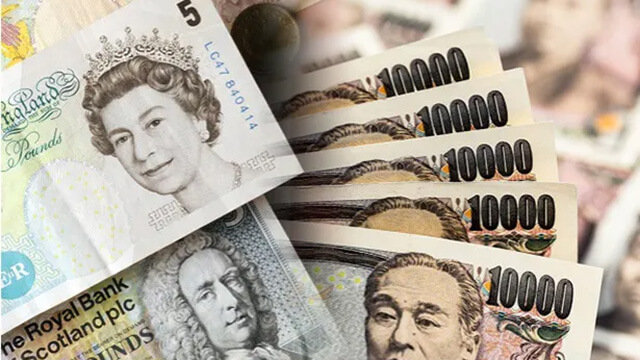
 766
766
GBP/JPY Slides on Weak UK Retail Sales Amidst Easing Geopolitical Tensions
GBP/JPY has reduced its earlier gains following a disappointing report on the UK’s Retail Sales, which registered a 2.7% decline month-over-month in May. This downturn significantly exceeded market expectations, which had forecasted a mere 0.5% drop. The currency pair found some initial support from easing geopolitical tensions related to the US approach toward Iran. As a result, GBP/JPY is trading around 195.90, maintaining stability for the second consecutive day.
Recent data released by the Office for National Statistics revealed a notable decrease in UK Retail Sales, contrasting sharply with April’s revised increase of 1.3%. Core Retail Sales, which exclude automotive fuel, also experienced a downturn, falling by 2.8% — again worse than the anticipated 0.5% decrease. Year-over-year, the Retail Sales figures showed a decline of 1.3% in May, significantly down from April’s 5% growth, indicating potential challenges for consumer spending in the UK.
Meanwhile, the Pound Sterling shows resilience amidst the yen’s struggles, largely due to diminished negative developments regarding the situation between the US and Iran. The lack of escalatory actions in the Iran-Israel conflict has improved market sentiment and overall risk appetite. Although recent statements implied that a potential negotiation timeframe between the US and Iran could be extended by a couple of weeks, the prevailing optimism contributes to the pound’s stable performance.
In a separate development, the Bank of England announced it would maintain interest rates at 4.25%. While this decision aligned with trader expectations, it also saw some dissenting voices among the Monetary Policy Committee, with a few members advocating for a reduction. The Japanese yen, under pressure, is additionally challenged by ambiguous signals regarding the timing of the next interest rate hike from the Bank of Japan. Recent comments from BoJ Governor Kazuo Ueda indicated a primary focus on potential adverse economic impacts, particularly from US tariffs, suggesting that the central bank is unlikely to implement rate hikes in the immediate future.














